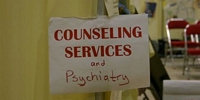For many people, going to the dentist can be an intimidating and frightening experience. Some even forgo dental procedures altogether because of fear. Regrettably, this can lead to large cosmetic and oral health issues. Fortunately, some dentists are now able to provide options for the anxiety-ridden to help them have a pain-free dental experience. With sedation dentistry your cosmetic dentist can offer you peace of mind.
What is Sedation Dentistry?
Sedation dentistry is a term used to describe a method in which a trained sedation dentist will use one of a variety of sedation techniques to relax a patient before and during a dental procedure.
Oral Sedation
The use of an oral sedative during a dental procedure is extremely common among sedation dentists. In general, you will take your prescribed sedative (commonly Valium) about an hour before your appointment. During your procedure, you will be conscious but very relaxed and drowsy. It will be necessary for you to arrange transportation to and from the dentist’s office because the drug’s effects take a while to wear off.
Nitrous Oxide
You and your dentist may decide that nitrous oxide is the best sedation option for you. If this is the case, you will be asked to breathe through a mask that will give you a regulated amount of nitrous oxide during your procedure. The gas has similar effects to oral sedatives, however the effects only last a few minutes after you stop its use. For this reason, you will likely be able to drive home after your procedure.
IV Sedation
Intravenous sedation was the predominant method of sedation in the past and is still an effective method of sedation; however, many patients today prefer “no needle” sedation.
What is Sleep Dentistry?
Sleep dentistry is often mistaken for sedation dentistry because patients generally become drowsy and might fall asleep during a sedation procedure, but sleep dentistry is actually entirely different. Sleep dentistry is a procedure performed under general anesthesia. With general anesthesia you will be fully unconscious and not easily roused. During any procedure with general anesthesia, you must be constantly monitored to ensure your breathing and heart rate are normal.
Dentists generally perform sedation dentistry because it is much safer than the sleep alternative.



